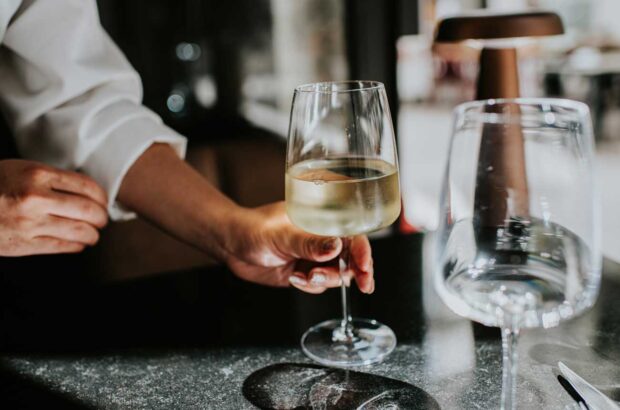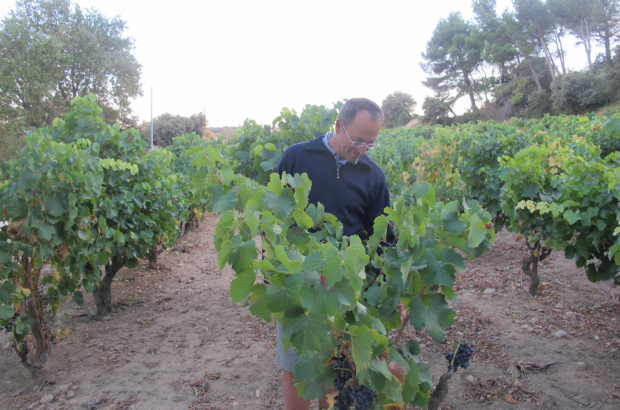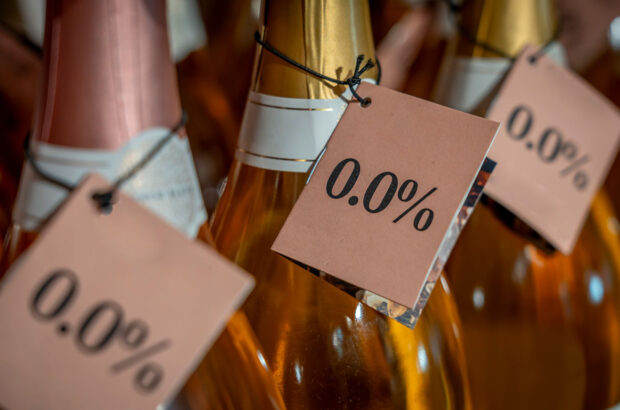I’m at La Maison du Saké in Paris’s 2nd arrondissement, watching the rain shatter the pavement outside as I sip a cockle-warming glass of sake from organic, natural producer Katori. It’s aromatically complex – smooth yet textured, much like the sandstone walls and blonde oak shelves of the shop.
‘I was expecting you to want something that tastes like fruit and is really easy,’ says Dmitri David, the store manager, who poured me this glass after I mentioned I needed something with depth to combat the dreary weather.
For the last three years, the shop has focused on traditional sakes with lower polishing ratios. ‘Even young people in their twenties want to try something that tastes like soy sauce and mushroom,’ says David.
The market was once dominated by fresh, fruity Junmai Daiginjos made in modern styles. Today, there is a full spectrum of profiles, leading to a diversity of places to enjoy the drink – something the shop has recognised from their sales, with natural wine bars being the latest market sector they’re targeting.
With Japanese cuisine so strong in Paris, traditional Japanese contexts – from high-end to noodle spots – still remain an excellent way to enjoy the drink, while high-end gastronomy has always celebrated sake for its umami and sweetness, with renowned chef Alain Ducasse even venturing into own-label sparkling sake. But Paris’s sake scene is evolving in intriguing ways. So keep your eyes peeled, sake lovers – this list is just a starting point.
La Maison du Saké
11 Rue Tiquetonne
Aiming to showcase the diversity and complexity of sake, this shop organises its selection into distinct categories: modern vs traditional, rice-driven vs water-driven, with entire sections dedicated to natural sake and Koshu (aged sake). The natural sake category is particularly distinctive, emphasising both a technical and philosophical approach – featuring low polishing, no added yeast or lactic acid, and a strong focus on terroir.
There are always up to twenty varieties available for tasting in the shop, while any bottle can be enjoyed at a slightly higher price point in the shop’s bar, Golden Promise, or its restaurant, Erh, where Chef Ryuichi Utsumi crafts dishes that blend Japanese techniques with French ingredients.

La Maison du Sake. Credit: Jérôme Galland
Stand Tora (Kunitoraya)
6 Rue de la Sourdière 75001 Paris
At this tiny bar in the heart of Rue Sainte-Anne, the supple piano notes of Bill Evans and Oscar Peterson drift from a vinyl player in the corner as Masumi Nomoto, owner of bar and udon restaurant Kunitoraya, pours sake into coupettes from a diverse range of styles. The selection changes monthly, but the focus remains on her home region of Kochi Prefecture.
While sake hasn’t gained the same foothold in Paris as it has in New York or London, the kind of independent, highly personalised experience that Nomoto’s bar offers thrives in the city. Any food order from the excellent-value chalkboard menu should include the umaki – a dish of tamago (Japanese rolled omelette) layered with black truffle and eel.
L’Ecrin
10 Place de la Concorde
Xavier Thuizat – who was named Best Sommelier of France in 2022 – is one of those key voices emphasising sake’s dynamism and adaptability to French fine dining. At the one-Michelin-starred L’Ecrin, Thuizat has curated a sake pairing alongside a wine pairing. He believes it is a phenomenal way to enhance an umami-forward menu featuring meticulously sourced premium ingredients such as spider crab, turbot, blue lobster, red mullet, Bresse chicken, and wagyu beef from Burgundy.

L’Ecrin. Credit: Lauren Luxenberg
Wakaze
31 Rue de la Parcheminerie
At this casual sake bar and izakaya-style restaurant, a unique blend of Japanese brewing and French ingredients is showcased. Founded in 2016, the sake is produced at a brewery just outside Paris, using Camargue rice, Burgundy white wine yeast, and house-made koji rice, blending yellow koji for umami and white koji for a citric kick. The baseline sake has a white wine-like profile and is poured fresh from taps into natural wine-style glasses marked with a playful logo. With around twenty-four sakes on offer – many of them experimental – one standout creation is the Sauternes-barrel-aged sake, which carries the saffron and caramel profile of Sauternes, with a Junmai-like savoury, umami finish.

Wakaze France. Credit: Sadiksansvoltaire
Omasake
27 Rue du 4 septembre
In this futuristically designed space, you can experience a wide range of prices, styles, and geographies, surrounded by sleek, brass-lined walls. The food menu is izakaya-style, with simple dishes, sashimi, and sushi created from the surplus of their Michelin-starred omakase, Sushi Yoshinaga, which is upstairs. With a focus on modern styles of sake production, there is a rotating selection of six sakes by the glass at any one time, with two from each of the categories: Junmai, Junmai Ginjo, and Junmai Daiginjo.
Sushi B
5 Rue Rameau
Offering a more traditional approach to sake, this is one of many Japanese-run places where finely executed Japanese cuisine is beautifully enhanced by sake. With only eight seats, the intimate omakase restaurant ensures that Head Sommelier Jangbae Hong is always on hand to guide you based on your preferences. You can enjoy a glass alongside the more accessible sushi lunch menu, or, if opting for the full omakase experience, a sake pairing that evolves with the three main stages of the meal, or a seven-sake flight to experience the full range of Hong’s precise selections.
Kodawari Ramen (Yokocho)
29 Rue Mazarine
Given the quality of Japanese food in Paris, often regarded as one of the best outside Japan, a perfect way to enjoy sake is with udon, soba, or ramen. Kodawari is one of the best ramen spots in the city – with a consciously transportive décor – and the speciality pairs perfectly with the only sake available, Dassai 45. This excellent-value Junmai Daiginjo is mineral, fruity and cereal-y, with top notes of Asian pear and sesame. It’s ideal then with the Kurogama ramen, a rich, charcoal-hued chicken broth that gets its colour from black sesame. Return to your glass with each slurp, and whatever you do, don’t forget to take a sip after the nori (seaweed), which releases waves of umami on the palate.
Echizen Soba
33 Rue Saint-Roch
A phenomenal soba experience awaits at this intimate spot, where you can watch the craftsmanship of soba production at the bar. Order cold or hot soba and pair it with sake from their short list or the sake du jour, a rotating artisanal selection. For the ultimate experience, go for the herring soba in hot dashi. The herring is caramelised, with a lingering fishy flavour, and the overall umami in the dish is subtle, nurturing, and refined – a quality that could only be enhanced by sake.







